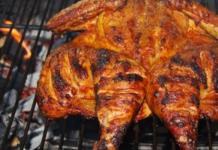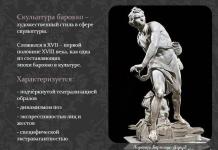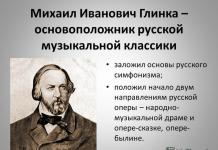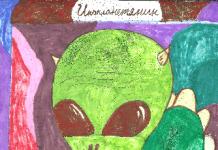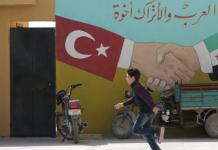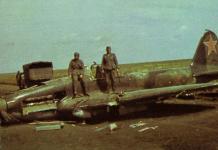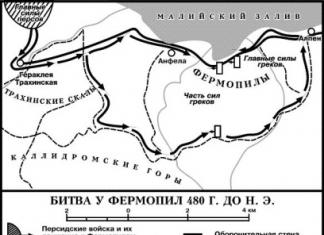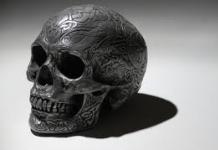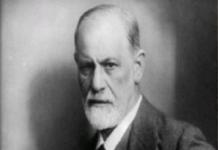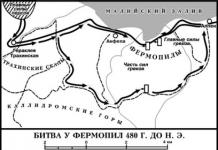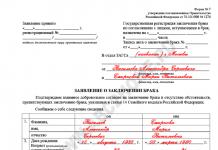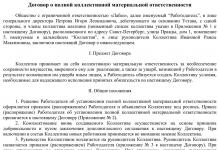Anna Leontyeva
Thematic conversation “A story for children about Maslenitsa”
STORY FOR CHILDREN ABOUT MASLENITSA
Thematic conversation with presentation
For children senior and preparatory groups of kindergarten
Target: To introduce preschoolers to Russian folk holidays through various activities
Tasks:
Educational - to instill a love of folk art, to contribute to the formation of children ideas about Russian culture;
Developmental - expand knowledge children about customs and traditional calendar holidays;
Educational - to cultivate love and respect for folk traditions, a culture of behavior at public events, to give children joy and pleasure from joint activities.
End of winter. The days become long and bright, the sky becomes blue and the sun becomes bright.
Since ancient times Maslenitsa the most cheerful pre-spring holiday. It is celebrated at the end of winter and celebrated for a whole week. Cheerful and riotous, it lasted a whole a week: fairs, street games, performances by mummers, dances, songs.
Everyone is having fun and rejoicing that winter has passed and spring is coming. The celebration took place according to a strictly scheduled order.
So it begins Maslenitsa on Monday.
First, they made a large straw doll, dressed it brightly and placed it on the highest and widest place so that they could have fun around it.
They installed swings, built snow slides and fortresses. Cheerful buffoons barked and amused the people with their jokes
Come on people, come visit Maslenitsa is waiting!
Pancake Maslenitsa, hearty, ancient, with a samovar, with fire, sun, snow, breeze!
We invite those who love fun and laughter!
Games, fun and jokes await you!
We won't let you get bored for a minute!
With these words the buffoon barkers invited people to Maslenitsa festivities.
Not without reason among the people Maslenitsa was called wide. The main treat of the holiday is pancakes, an ancient pagan symbol of the return of sun and warmth to people.
In full Pancakes are baked on Maslenitsa, pancakes. This is where it came from proverb: "Not living, but Maslenitsa". What is the most important thing in Maslenitsa? Well, of course, pancakes! Without them there is no Maslenitsa. Housewives baked pancakes every day from buckwheat or wheat flour. On the first day - pancakes, on the second - pancakes, on the third - pancakes, on the fourth - pancakes, on the fifth - pancakes, on the sixth - pancakes, on the seventh - royal pancakes. The pancakes were served with sour cream, jam, butter oil, honey, fish caviar, eggs.
These are the songs the girls and boys sang, they took the straw dummy - Maslenitsa and walked or rode with him around the village or village.
The second day - Tuesday - was called "flirt"
On this day, games began to gather and fun: girls' swings, horse rides, slide rides were arranged, snow towns were erected.
The people are betraying Maslenitsa pleasures, sledding down the mountains, fist fun. Kids, getting ready for Maslenitsa ice mountains pouring water on them, sentenced: "Are you my soul? Maslenitsa, quail bones, your paper body, your sugar lips, your sweet speech! Come visit me in the wide yard, ride in the mountains, roll around in pancakes, amuse your heart. You are mine Maslenitsa, red beauty, light brown braid, thirty brothers, sister, you are my little quail! Come visit me in the plank house, have fun with your soul, have fun with your mind, enjoy your speech!" And then the children ran away from the mountains and shouted: "I've arrived Maslenitsa". Sometimes children made a woman out of snow, who they called Maslenitsa, put on a sled and rolled down the mountain from words: "Hello, broad Maslenitsa!".
The third day Maslenitsa - Wednesday -"Gourmand" ("sweet tooth")
On this day we feasted on pancakes and other Maslenitsa dishes. Pancakes were a symbol Maslenitsa. Why? On We ate Maslenitsa heartily, fat, plenty. The round shape and golden color of pancakes were considered symbols of wealth.
Damn is not the only one good.
Damn is not a wedge, it won’t split your belly!
How on butter pancakes were flying out of the chimney this week!
You, my pancakes, my pancakes!
Wide Maslenitsa, we boast about you,
We ride in the mountains and gorge ourselves on pancakes!
On Shrovetide Ritual pancakes were baked during the week - the personification of the sun; the girls danced in circles and sang songs. The songs spoke of abundance oils, cheese, cottage cheese.
The boys and girls wore their best clothes.
Main participant Maslenitsa- a large straw doll named Maslenitsa.
Thursday - wide, roam-four. This day was the day with the most entertainment.
There were horse races, fist fights and wrestling. They built a snow town and took it in battle. We rode horses around the village. We went down the mountains on sleighs and skis. The mummers amused the people. Everyone enjoyed pancakes. They walked from morning to evening, danced, danced in circles, sang ditties.
Friday is mother-in-law's evening. On mother-in-law's evenings, sons-in-law treated their mothers-in-law to pancakes. And at noon the girls carried out pancakes in a bowl on their heads and walked to the hill. The guy who liked the girl was in a hurry to try the blink so that to know: Will she make a good housewife?
Saturday - sister-in-law's get-togethers. On this day, the newlyweds invited their relatives to visit them and treated them with refreshments. There were conversations about life and being, they made peace if they had been in a quarrel before. They also remembered deceased relatives and spoke good and kind words about them.
Sunday is a forgiven day. It was a farewell Maslenitsa. They made a fire of straw in the field and burned a doll with songs. The ashes were scattered across the fields in order to reap a rich harvest the following year. On Forgiveness Sunday, we went to each other to make peace and asked for forgiveness if we had offended them earlier. They talked: "Please forgive me". “God will forgive you,” they answered. Then they kissed and did not remember the insults. But even if there were no quarrels and insults, it’s all the same talked:"I'm sorry". Even when we met a stranger, we asked him for forgiveness.
Maslenitsa, Goodbye!
And come next year!
Maslenitsa, come back!
Show up in the new year!
Goodbye, Maslenitsa!
Goodbye red!
This is how it ended Maslenitsa.
Publications on the topic:
“AND IT’S MASLENITSA TODAY!” Entertainment for children of senior preschool age. In the music room, to the background of folk music, appropriate.
 Attributes for the holiday: - Costumes for Presenters and Maslenitsa; - audio recording of folk songs; - tables, benches, tablecloth, samovar, tray.
Attributes for the holiday: - Costumes for Presenters and Maslenitsa; - audio recording of folk songs; - tables, benches, tablecloth, samovar, tray.
Summary of educational activities on art activities “We call for Maslenitsa! Let's welcome spring! for pre-school children Summary of educational activities on art activities in the preparatory group Topic: “We call for Maslenitsa. Let's welcome spring! (Educational areas: cognitive.
Synopsis of NNOD with a presentation for children 6–7 years old “Mushroom paths” It's the month of September. The beauty of autumn changes the color of foliage and animals, muffles the sounds of birdsong, and makes tree crowns thin out.
Evgenia Ponomareva
What to tell children about Maslenitsa
Maslenitsa- a cheerful and life-affirming holiday of seeing off winter and welcoming spring, which is celebrated with pleasure by both children and adults. But we must remember that Maslenitsa is ancient, another pagan holiday that survived after the baptism of Rus'. This is a holiday with its own special traditions, the meaning of which children may not be clear. For example, you know why Maslenitsa- such a loud and noisy holiday? Because the earth needs to be awakened, and then spring will begin, it will be possible to plow the earth and sow grain. Try to find time and tell the children about Maslenitsa: about why the holiday is called that; Why Maslenitsa It is always celebrated on a different date; about why they burn effigy and, of course, about famous Maslenitsa pancakes. tell the children about Maslenitsa
Why do Maslenitsa has no fixed date
Maslenitsa- a moving holiday and does not have a constant date, it is celebrated 7 weeks before Easter, in the last week before Lent. Maslenitsa is celebrated for a whole week, which is called - Maslenitsa week. On the last day Maslenitsa Weekly folk festivals are held.
Why is the holiday of farewell to winter called Maslenitsa
During Maslenitsa We didn’t eat meat for weeks, so the body’s preparation for Lent began (7 weeks). It's called a holiday Maslenitsa because, What oil could still be eaten along with other dairy products ( Maslenitsa from the word« oil» ).
Why on Pancakes are baked on Shrovetide
Invite your child to guess why Pancakes are baked during Shrovetide, not pies or cheesecakes. Because the round, rosy and golden pancake looks so much like the sun. And there is no spring without the sun.
As noted Maslenitsa in Rus'
In Rus' Maslenitsa has always been widely noted.
Monday to Wednesday Maslenitsa was called"narrow", started on Thursday "wide" Maslenitsa- everyone went to visit each other, rested, work was forbidden.
Every day Maslenitsa weeks had its way meaning: Monday - "Meeting"(from this day they began to bake pancakes, the first pancake was given to the church to commemorate the dead, Tuesday - "Flirting"(girls and boys rode down the slides, went to visit for pancakes, Wednesday - "Gourmand"(everyone feasted on pancakes, Thursday - "Revelry"(booths began to operate, fist fights were held, sleigh and horse riding continued, Friday - "Mother-in-law's evening"(mothers-in-law invited their sons-in-law to visit for pancakes, Saturday - "Sister-in-Law's Gatherings"(brides invited future sisters-in-law to visit for pancakes, Sunday - "Forgiveness Sunday"– the pinnacle of holiday festivities.
On Forgiveness Sunday, people asked each other for forgiveness for all their offenses and burned an effigy of winter at the stake. The scarecrow was made from straw, and each village resident had to bring something for him. manufacturing: or straw, or items of clothing. The stuffed animal was made by the first day Maslenitsa week, then all week long they danced around him, sang songs, and even rode him down the hills. In a word, people did everything to appease winter, to persuade it to go away. And on the last day Maslenitsa For weeks the effigy was destroyed, usually burned at the stake.
Maslenitsa fun for children
Particularly interesting children will learn about folk Maslenitsa fun.
Round dance "Sun" for babies
You need to stand in a circle and hold hands, the leader in the center depicts the sun. Children lead a round dance and sing:
Shine, sun, brighter -
Summer will be hotter
And the winter is warmer (the circle is shrinking,
And spring is nicer (circle expands).
Then the presenter suddenly shouts “I’m burning!”. This is a signal for the children to run in different directions. And the leader catches them.
"Burners"
Children are divided into pairs and stand in a column. The leader stands at the front of the column. Children sing:
Burn, burn clearly
So that it doesn't go out!
Look at the sky
Birds are flying
The bells are ringing:
Ding-dong, ding-dong,
Run out quickly!
At the last words of the song, the first pair of children are trying to run away from the leader (the burner, and he is trying to catch them. The rest of the children sentenced: “One-two, don’t be a crow, but run like fire!”. If those running away manage to stand at the end of the column and join hands again, then the leader remains. And if the burner catches one child, then he stands in a pair with him in a common column, and the one who lost the pair becomes the leader.
"Taking the Snow City"
Children and adults built a snowy city, then one team defended it, and the other attacked.
"King of the Hill"
Both children and adults gathered near a snow-covered mountain, and then, at the command of the leader, began to climb it. Whoever climbs the mountain first is the winner.
And after descending from the mountain they even predicted who would have what year. If you drive safely (don’t roll over or hit yourself), then the year will be successful. And the further you drive, the longer you’ll live.
Proverbs and sayings about Maslenitsa
There are many proverbs and sayings about Maslenitsa, try to explain them with your children meaning:
“A pancake is not a wedge, it won’t split your stomach”,
"Not everything goes to the cat" Maslenitsa, there will be Lent",
"Not life, but Maslenitsa» ,
« Maslenitsa - go around, take care of the money",
“At least pawn everything from yourself, and celebrate Maslenitsa» ,
“So that you are up to your elbows in trouble, and so that you get your fill of food”.
To Maslenitsa remembered by your child, one story there will be a holiday few: try to put into practice at least part of your story. You can go to a museum for a thematic exhibition, ride horses like in the old days, learn songs, bake pancakes according to an old recipe (made from buckwheat flour). Or you can organize a whole children's party, with games, round dances and songs. And making a real stuffed animal with your own hands is also not at all difficult. And of course you need to go to Sunday folk festivities so that the child can see everything with his own eyes.
Publications on the topic:
Space for preschool children, such an interesting topic. Let's try to tell children about space as clearly and interestingly as possible.
What to tell children about November November was called “november” in ancient Rome, which translated from Latin meant “nine”, that is, November used to be the ninth month in a row.
Consultation “How to tell children about the Nativity of Christ”
Presentation “How to tell children about the Nativity of Christ” How to tell children about the Nativity of Christ. Once upon a time there lived a girl named Maria. She was betrothed to the carpenter Joseph, who came from.
Everyone knows a holiday like Maslenitsa, when all families bake and eat pancakes. But not everyone knows where this holiday came from, how it was celebrated in ancient times and what its customs are. It is celebrated at a time when winter is losing ground and giving way to spring. To make spring come faster, the Slavs baked pancakes - the personification of the sun, organized festivities with songs, dances, fun games, and at the end of the holiday they burned an effigy of Maslenitsa. It arose at a time when people were pagans and there was no Christianity in Rus' yet, but despite this, Maslenitsa is still celebrated.


Maslenitsa in Russia date

There is no exact date when to celebrate Maslenitsa. In modern Christianity, before the onset of Great Lent, Maslenitsa is celebrated in the last week. Easter comes seven weeks after Maslenitsa. In Christianity, such a week is called cheese week. According to church canons, this week you need to give up meat and eat only dairy products and fish. This is done so that every person prepares for Lent. Since Easter does not have a fixed date in the church calendar, the time of the holiday is different every year. For example, in 2016, Easter was celebrated on May 1, and Maslenitsa from March 7 to 13. In 2017 - April 17, Maslenitsa - from February 20 to 26. In 2018 - April 8, Maslenitsa - from February 12 to 18. And in 2019, Easter falls on April 28, Maslenitsa - from March 4 to 10. Maslenitsa in 2020 is celebrated on March 1, and Maslenitsa week will begin on February 24.
How Maslenitsa is celebrated in Russia
Even in our time, Maslenitsa is celebrated on a grand scale. Pancakes are a symbol of the holiday, which are baked in every family. They usually bake a lot of pancakes so that they can eat themselves and treat others. You need to eat pancakes in large quantities this week. There is a legend that the speedy arrival of spring depends on the number of pancakes eaten. During Maslenitsa, fairs are held on city streets where pancakes are baked and sold. Pancakes are usually eaten with butter and with various fillings other than meat. People dress up in fancy dress and take part in street fun.
- Snow targets - you need to hit a target with snowballs that is installed on a fence or supports.
- A pillar doused with water and frozen. A prize is hung at the very top. You need to climb to the very top and get the prize.
- Snow labyrinth. On the eve of Maslenitsa, walls are built from snow in a circle or square, in the form of a labyrinth. Whoever finds a way out wins.
- Tug of war - a thick long rope is taken, several people stand at both ends of the rope. Each side pulls the rope towards itself. Whoever wins wins.
- Snow fortress. On the eve of Maslenitsa, a fortress is built from snow. Two teams are participating. One attacks, the other defends.
- Throwing felt boots. The essence of the game is to throw the felt boots as far as possible.
- Blind Man's Bluff - one of the participants is blindfolded. The playing area is limited to a circle that you cannot go beyond. A blindfolded participant tries to catch other players within the circle. The rest should run and make sounds or clap their hands.
- Walking on stilts - you need to walk a certain distance by stepping into drawn circles.
- Fights - wall to wall and fist fights. Men take part in the battles. If someone falls during the fighting, according to the rules of the game, you cannot beat him. Blows to the head and vital areas are prohibited.
- Roosters - two people take part, each standing on one leg. The goal is to shoot down your opponent.





During the holiday you cannot be sad and bored. Puppet shows are held on the streets with the participation of Petrushka, who makes people laugh. All residents are in fancy dress. Women wear Russian scarves. Newlyweds should show their love for each other in every possible way; kissing in public is encouraged. Many repeat the test that is customary at Epiphany - swimming in an ice hole. Throughout Maslenitsa week, people ride down ice slides, on horse-drawn sleighs, sing songs, dance in circles and call on spring to come quickly.
Spring is red, come soon. Bring us warmth. Melt the snowball. Let the sun shine brighter, bring us joy, and let winter go away.

It is believed that those who do not take part in the festivities at this time will face troubles and misfortunes. And active participation, eating pancakes, and feasts promise prosperity and a good harvest. Tables rich in treats, on which there must be a lot of pancakes, are the main idea of Maslenitsa. There are always pancakes “on every corner”, as many as you can fit.
Each day of the week carries a certain meaning.
- Monday - Maslenitsa meeting. The baking of pancakes begins, the very first ones are given to the poor. The Maslenitsa Scarecrow is made mainly from straw and dressed in old women's clothing. Then they install it in the center of the festivities. Sometimes it is carried through all the streets.

- Tuesday is a flirt. It's time to start the festivities. Both old and young have fun and rejoice, sing songs, dance around the scarecrow. Horses are harnessed to carts, which everyone enjoys riding on. They slide down the hills on ice sleds. Mummers appear on the streets, go from house to house and put on performances.

- Wednesday is delicious. Tables are laid abundantly, guests are invited and guests themselves go to visit. The mother-in-law (mother of the wife) is preparing to meet her son-in-law, baking pancakes for him. If a son-in-law does not want to come visit his mother-in-law, this is considered disrespectful. Merchants appear on the streets and immediately bake pancakes. When you get hungry, you can eat a pancake and drink hot tea. T

- Thursday - the revelry begins. The middle of the holiday, when the main games and fun begin. General fun, round dances, songs, dances, theatrical performances - all this can be seen on the streets of cities and villages to this day.

- Friday - nicknamed mother-in-law's evenings. Couples who have recently gotten married ride around dressed up in sleighs and visit all the guests who walked at their wedding. It's time for the son-in-law to invite his mother-in-law to eat pancakes. The son-in-law is happily preparing to meet his mother-in-law.

- Saturday - sister-in-law's get-togethers. The young wives must set the table and bake pancakes. Sisters-in-law (sister-in-law is the husband's sister) come to visit the daughter-in-law and have a feast of eating pancakes. Numerous relatives also came to visit “for pancakes.”

- Sunday - farewell. This day is also called Forgiveness Sunday. This time, they come to visit to ask for forgiveness. It is customary to forgive each other and then kiss each other.

The burning of stuffed animals at the stake, along with old things, occurs on the last day of the celebration. This is where the holiday ends.
Video Maslenitsa in Russia
Maslenitsa traditions in Russia for children briefly

The name of the holiday “Maslenitsa” comes from the word “butter”, since on this holiday you can eat butter and other dairy products, but you cannot eat meat. Maslenitsa is celebrated before Lent and people eat for future use.
What is fasting? During this period, believers eat only plant foods and abstain from meat and dairy products. It is believed to be good for health.
Maslenitsa is celebrated at a time when winter is ending and spring has not yet come into its own. To invite spring to come soon, they bake pancakes that resemble the sun. People eat pancakes themselves and treat their family and friends. Maslenitsa lasts a week - 7 days, during which all the people have fun and walk. Everyone rides down the mountains, arranges games and fun. A stuffed animal is made from straw, which symbolizes Maslenitsa. Then they put clothes on the stuffed animal, mostly old ones. There are dances and dances around the scarecrow, and round dances are held. The celebration ends with the burning of the effigy. At the end of Maslenitsa week, everyone asks each other for forgiveness.
Why do they burn an effigy on Maslenitsa?
Burning a straw effigy is symbolic. Since ancient times, it was believed that with the burning of the symbol of winter, all misfortunes and sorrows go away. Through death comes the rebirth of everything new and good. Along with the scarecrow, they burned old, unnecessary things. The ashes were scattered on the fields so that the coming harvest would be rich.
Photo painting by Kustodiev Maslenitsa
The Russian artist, Kustodiev, more than once turned in his work to the theme of Maslenitsa. His paintings, painted in different years, are known.


Essay plan based on Kustodiev’s painting Maslenitsa
- Introduction. The great Russian artist B.M. Kustodiev. (A short description of the artist’s life during the period when the picture was painted).
- The image of nature in the painting “Maslenitsa” (Description of a snow-covered city, the color of the last days of winter).
- Holiday atmosphere. (Figures of people, in the foreground, in the background. Their mood)
- Feelings and emotions evoked by what is depicted in the painting.
5th grade essay description based on Kustodiev’s painting Maslenitsa
One of the famous Russian artists, B.M. Kustodiev, was born in 1878, in the Russian Empire. The paintings he painted during his life are portraits of people. The painting “Maslenitsa” is the embodiment of his dream, to combine on one canvas the image of nature, urban color and human figures. Despite the fact that the painting depicts a holiday, the artist himself, during this period of his life, was confined to a wheelchair.
The painting is dedicated to the cheerful Slavic holiday - Maslenitsa, which is celebrated before Lent. Looking at the picture, we understand that winter is losing ground. Despite the fact that everything around is covered in snow, the image of clouds, the breaking rays of the sun, flocks of birds in the blue sky - all this suggests that spring will come soon.
The central place in the picture is occupied by a painted sleigh drawn by three horses, which are dashingly controlled by a coachman. Noble gentlemen ride in sleighs, hurry to visit someone, or simply ride around, enjoying the sunny day. Horse teams are visible from different sides. Overcoming snowdrifts, they rush in other sleighs, simpler people. In the background there are children riding down the mountain; below you can see a tent and gathered people. In the distance you can see a panorama of the city with its churches and temples. The golden domes are dusted with snow.
The image in the painting evokes a feeling of celebration and fun. You can hear the ringing of bells, the laughter and conversation of ordinary people. Looking at the picture, you want to take part in this cheerful holiday.
Report on the topic Maslenitsa 6th grade
Maslenitsa is a holiday that was widely celebrated by pagans. It arose a long time ago, when Christianity was not accepted by the Slavic peoples. Despite how long ago the holiday originated, its traditions and customs have been preserved to this day. The essence of the holiday is to say goodbye to winter and call for spring to come quickly. The holiday received this name because during Maslenitsa week you can eat butter and dairy products. The symbol of Maslenitsa is pancakes, rosy and delicious, which are baked and eaten in large quantities. Also at this time, it is customary to walk and have fun. Maslenitsa lasts a whole week, before Great Lent, seven weeks before Easter. On every day of the week, you need to do what is prescribed by customs.
- Monday - meeting. They eat pancakes and make a stuffed animal that represents Maslenitsa. The effigy is dressed in women's clothing and placed on the street where the holiday will take place. Around the scarecrow of Maslenitsa, the main festivities take place, round dances are held, songs are sung.
- Tuesday is the start, the festivities begin. No one should sit at home and be sad. People take to the streets and have fun.
- Wednesday is delicious. The holiday is in full swing, it is customary to eat pancakes and treat others. On Wednesday, the son-in-law goes to visit his mother-in-law to eat pancakes, and the mother-in-law prepares to meet her son-in-law.
- Thursday is a riot. All the people take part in all kinds of entertainment - tug of war, walking on stilts, throwing snowballs at a target, and the most fun thing - skiing down the icy mountains. Fist fighting and wall-to-wall fighting are popular among men.
- Friday - the son-in-law sets the table at home and invites the mother-in-law to eat pancakes.
- Saturday - sister-in-law's get-togethers. The young wife invites her sisters-in-law to visit and treats them to pancakes.
- Sunday is forgiven. Everyone asks each other for forgiveness and forgives others for their offenses.
At the end of the holiday, the effigy of Maslenitsa is burned. At the same time, it is customary to throw old things into the fire so that all the bad things that were gone are burned, and a new, good life is reborn.
History of the Maslenitsa holiday for children
Maslenitsa refers to the moving, mobile holidays associated with Easter. Maslenitsa is celebrated in the last week before Lent, which lasts seven weeks and ends with Easter. And the name “Maslenitsa” arose because this week, according to Orthodox custom, meat is already excluded from food, and dairy products can still be consumed - so they bake butter pancakes. Maslenitsa was originally called Meat Empty, later Cheese Week.
According to legend, Maslenitsa was born in the north, its father was Frost. One day, in severe frosts, a man noticed her hiding behind huge snowdrifts. He called her to help people, cheer them up, warm them and feed them. Maslenitsa has arrived. But she turned out not to be the fragile girl they saw her at first, but a healthy woman, with rosy cheeks, an insidious look, and laughing loudly.
The custom of celebrating Maslenitsa dates back to ancient times - Greek and Roman holidays, which in Western Europe turned into carnivals. In addition, the customs of Maslenitsa come from the rituals of the pagan Slavs. Its celebration was timed to coincide with the spring equinox. The rituals that were performed at that time were aimed at driving away winter and welcoming spring. Therefore, today Maslenitsa has become for people holiday of farewell to winter.
Under Peter I, Maslenitsa fun was held in Moscow at the Red Gate. In 1722, on the occasion of the Peace of Nystadt, the Tsar gave an unprecedented masquerade and sleigh ride in the Mother See. The procession was opened by Harlequin, seated in a sleigh drawn by six horses, decorated with bells and trinkets. Next came the mummers on a sleigh, and at the end of the procession a jester sat on a sleigh drawn by four pigs. Then a huge thing appeared - an 88-gun ship, built on the model of a ship launched in 1721. The tsar himself rode on the ship, which was carried by 16 horses, dressed as a naval captain.
Traditions of Maslenitsa celebration
In the first three days of Maslenaya Week, preparations were underway for the main celebration: they brought firewood for fires, built mountains, and decorated huts.
The main festivities took place from Thursday to Sunday. People entered the premises only to treat themselves to pancakes and hot tea. In some villages, young people walked around the courtyards with balalaikas, horns, and tambourines, singing carols. In the cities, people took part in festive festivities: they dressed smartly, went to theatrical performances, went to booths to watch buffoons and have fun with the bear.
One of the main entertainments was the skiing of young people and children from the ice mountains. They tried to decorate the slides with flags and lanterns. For skating they used sleds, matting, skins, skates, ice boats (flatten baskets frozen at the bottom), wooden troughs, and inverted benches.
One of the actions of Shrovetide Week was the capture of a snowy town. The guys built a snow town, an ice fortress with gates, put guards there, and then on foot and on horseback they went on the attack, climbed the walls, and broke into the gates. The besieged defended themselves with snowballs, brooms and whips.
On Maslenitsa, customs gave boys and young men the opportunity to show their prowess in a fist fight. Two villages, residents of opposite ends of a large village, monastery peasants with landowners could fight with each other. They prepared seriously for battle: they steamed in baths, ate bread and meat - in violation of the pre-Lenten prohibition - because they believed that they gave strength and courage. They also turned to the sorcerers and asked for a special spell for victory. It was believed that victory would be for the one who killed the black snake and put its tongue in his boot.
Proverbs and sayings for the Maslenitsa holiday
Not life, but Maslenitsa.
It’s not all about Maslenitsa, there will be Lent too.
Maslenitsa lasts for seven days.
Guys, today I will tell you about the most fun national holiday - Maslenitsa.
End of winter. The days become long and bright, the sky becomes blue and the sun becomes bright. At this time, folk festivities were held in Rus'. This holiday was called Maslenitsa. Cheerful and riotous, it lasted a whole week: fairs, street games, performances by mummers, dances, songs. It was not without reason that people called it the wide Maslenitsa. The main treat of the holiday is pancakes, an ancient pagan symbol of the return of sun and warmth to people.
Maslenitsa was called cheese week, during which people eat cheese and eggs. The people indulge in Maslenitsa pleasures, sledding down the mountains, and fistfights. The children, preparing the ice mountains for Maslenitsa, pouring water on them, say: “Are you my soul, my Maslenitsa, quail bones, your paper body, your sugar lips, your sweet speech! Come visit me in the wide yard, ride in the mountains, lie in the pancakes, have fun with your heart. You, my Maslenitsa, red beauty, blond braid, sister of thirty brothers, you are my little quail! Come visit me in the plank house, have fun with your soul, have fun with your mind, enjoy your speech!” And then the children ran from the mountains and shouted: “Maslenitsa has arrived!” Sometimes children made a woman out of snow, who was called Maslenitsa, put him on a sled and rolled him down the mountain with the words: “Hello, wide Maslenitsa!”
Throughout Maslenitsa they bake pancakes and pancakes. This is where the saying came from: “It’s not life, but Maslenitsa.” What is the most important thing about Maslenitsa? Well, of course, pancakes! Without them there is no Maslenitsa. Housewives baked pancakes every day from buckwheat or wheat flour. On the first day - pancakes, on the second - pancakes, on the third - pancakes, on the fourth - pancakes, on the fifth - pancakes, on the sixth - pancakes, on the seventh - royal pancakes. The pancakes were served with sour cream, jam, butter, honey, fish roe, and eggs.
Damn is not the only one good.
The pancake is not a wedge, it won’t split the belly!
Like pancakes were flying out of the chimneys during Shrovetide!
You, my pancakes, my pancakes!
Wide Maslenitsa, we boast about you,
We ride in the mountains and gorge ourselves on pancakes!
During Maslenaya Week, ritual pancakes were baked - the personification of the sun; The girls danced in circles and sang songs. The songs talked about the abundance of butter, cheese, and cottage cheese.
The boys and girls wore their best clothes.
The main participant of Maslenitsa is a large straw doll named Maslenitsa.
She was dressed in a dress, a scarf was tied around her head, and her feet were shod in bast shoes. The doll was seated on a sleigh and driven up the mountain with songs. And next to the sleigh, the mummers were jumping, running, teasing, and shouting jokes. Sometimes horses were harnessed one after another into large sleighs. It turned out to be a train. A young guy sat in the sleigh; various rattles and bells were hung on him. A chest with pies, fish, eggs, and pancakes was placed in front of him. The train traveled through the entire village amid the laughter and jokes of fellow villagers, and then went to the neighboring village. The fun continued until the evening, and at the end of all the activities they “said off Maslenitsa” - they burned an effigy depicting Maslenitsa.
Maslenitsa, goodbye!
And come next year!
Maslenitsa, come back!
Show up in the new year!
Goodbye, Maslenitsa!
Goodbye red!
Every day of Maslenitsa had its own name and its own fun.
Monday - meeting. They made a Maslenitsa doll, dressed it up, put it in a sleigh and took it up the hill. They greeted her with songs. The children came first. Starting from that day, the children rode down the mountains every day.
Tuesday is a flirt. Children and adults went from house to house, congratulating them on Maslenitsa and begging for pancakes. Everyone visited each other, sang songs and joked. On this day, games and fun began, girls' swings and horse rides were organized.
Wednesday is delicious. The adults started skiing down the mountains. From that day on, we rode around the village in a troika with bells. Relatives visited each other's families, visited with children, feasted on pancakes and other Maslenitsa dishes.
Thursday is a wide, roaming Thursday. This day was the day with the most entertainment.
There were horse races, fist fights and wrestling. They built a snow town and took it in battle. We rode horses around the village. We went down the mountains on sleighs and skis. The mummers amused the people. Everyone enjoyed pancakes. They walked from morning to evening, danced, danced in circles, sang ditties.
Friday is mother-in-law's evening. On mother-in-law's evenings, sons-in-law treated their mothers-in-law to pancakes. And at noon the girls carried out pancakes in a bowl on their heads and walked to the hill. The guy who liked the girl was in a hurry to try the blink to find out whether she would make a good mistress.
Saturday - sister-in-law's get-togethers. On this day, the newlyweds invited their relatives to visit them and treated them with refreshments. There were conversations about life and being, they made peace if they had been in a quarrel before. They also remembered deceased relatives and spoke good and kind words about them.
Sunday is a forgiven day. It was farewell to Maslenitsa. They made a fire of straw in the field and burned a doll with songs. The ashes were scattered across the fields in order to reap a rich harvest the following year. On Forgiveness Sunday, we went to each other to make peace and asked for forgiveness if we had offended them earlier. They said: “Please forgive me.” “God will forgive you,” they answered. Then they kissed and did not remember the insults. But even if there were no quarrels or insults, they still said: “Forgive me.” Even when we met a stranger, we asked him for forgiveness.
This is how Maslenitsa ended.








